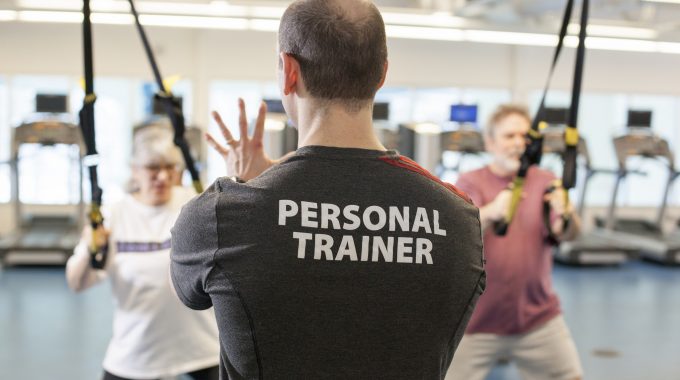In-home personal training has become a popular choice for many fitness enthusiasts seeking convenience, personalized attention, and flexibility in their workout routines.
However, finding the right personal trainer who meets your needs and fits well with your lifestyle can be a challenging task. Here’s a comprehensive guide to help you find the best in-home personal trainer in your area.
1. Determine Your Fitness Goals
Before you start searching for a personal trainer, it’s crucial to clearly define your fitness goals. Are you looking to lose weight, build muscle, improve cardiovascular health, or enhance flexibility? Knowing what you want to achieve will help you find a trainer with the right expertise and experience to guide you effectively.
2. Research and Referrals
Begin your search by asking for recommendations from friends, family, or colleagues who have experience with in-home personal trainers. Personal referrals can provide honest insights into a trainer’s capabilities and professionalism. Additionally, use online resources like local fitness forums, social media groups, and review websites to find reputable trainers in your area.
3. Check Credentials and Experience
Ensure the trainer you consider is certified by a reputable organization, such as the National Academy of Sports Medicine (NASM), the American Council on Exercise (ACE), or the National Strength and Conditioning Association (NSCA). Certification ensures that the trainer has met specific standards of competence and ethics. Also, inquire about their experience, especially in relation to your specific fitness goals.
4. Evaluate Specializations
Depending on your fitness goals, you may benefit from a trainer with specialized expertise. For instance, if you are interested in yoga, pilates, or strength training, look for trainers who have additional certifications or extensive experience in those areas. Specializations can significantly enhance the effectiveness of your workouts and ensure you get the most out of each session.
5. Assess Compatibility and Communication
A good personal trainer should not only be knowledgeable but also someone you feel comfortable with. Schedule an initial consultation to discuss your goals, ask questions, and get a sense of their personality and training style. Effective communication is key to a successful trainer-client relationship, so ensures the trainer listens to your needs and provides clear, constructive feedback.
6. Review Availability and Flexibility
In-home personal training should fit seamlessly into your schedule. Discuss the trainer’s availability and ensure it aligns with your preferred workout times. Flexibility is important, as life’s unpredictability might require occasional schedule adjustments. A trainer who can accommodate your timing needs will help you maintain consistency in your workouts.
7. Consider Logistics and Equipment
Discuss the logistical aspects of in-home training with potential trainers. Inquire about the equipment they bring and any additional gear you might need to purchase. Ensure that your home has adequate space for the workouts. Understanding these details upfront can prevent misunderstandings and ensure a smooth training experience.
8. Compare Costs
Cost is a significant factor when choosing an in-home personal trainer. Trainers’ rates can vary widely based on their experience, certifications, and the frequency of sessions. While it’s important to find a trainer within your budget, remember that investing in a qualified and experienced professional is crucial for achieving your fitness goals safely and effectively.
9. Read Reviews and Testimonials
Reading reviews and testimonials from previous clients can provide valuable insights into a trainer’s effectiveness and reliability. Look for feedback on their professionalism, punctuality, communication skills, and the results clients have achieved. A pattern of positive reviews can indicate a high-quality trainer.
10. Trust Your Instincts
Finally, trust your instincts. After meeting and evaluating potential trainers, consider how you feel about working with them. The right personal trainer should inspire confidence, motivate you, and make you feel comfortable during your sessions. Trusting your gut can help you make the best choice.
Conclusion
In conclusion, finding the best in-home personal trainer in your area involves thorough research, clear goal-setting, and careful evaluation of potential candidates. By following these steps, you can find a trainer who not only meets your fitness needs but also fits well with your personal preferences and lifestyle, setting you on a path to successful and enjoyable fitness training. #hydnews #khabarlive







